Good Disruption
”Good Disruption” is a lively discussion between UVA Darden School of Business Professors Mike Lenox and Yael Grushka-Cockayne on cutting edge technologies and practices that are challenging the status quo. They then make their personal call on whether this is a good disruption, bad disruption, or actually no disruption.
Episodes

Monday Feb 02, 2026
Monday Feb 02, 2026
Mike and Yael catch up with Darden Professor Tim Laseter following his trip to the Consumer Electronics Show in Las Vegas. From robots to beauty tech to smart glasses, the show features the latest in cutting edge new tech. What’s new, scalable, or hype?

Monday Jan 05, 2026
Monday Jan 05, 2026
Our fourth season kicks off with a mini course on disruptive innovation. What is it and what are the markers of a major technological shift? Mike and Yael give a brief Disruption 101 and explore whether disruptions are inherently good or bad, considering both the immediate negative effects and the long-term positive outcomes. They also discuss the role of government, venture capital, and other stakeholders in fostering innovation.

Monday Dec 01, 2025
Monday Dec 01, 2025
As we end our third season, Yael and Mike reflect on the disruptive technologies explored over the last year. It was an interesting mix of good, bad, and no disruption calls. Do they feel the same now about disruptive potential that they did when each episode first aired? What’s coming in 2026? Don’t miss this recap and send the Good Disruption team your ideas at duffr@darden.virginia.edu.

Monday Nov 03, 2025
Monday Nov 03, 2025
Large language models (LLMs) offer powerful opportunities for automation, creativity, and knowledge access. With 800 million people using ChatGPT alone, LLMs are drastically changing the way we interact and operate as a society. No question, this is one of the biggest disruptions of our lifetime; but is it a good one?
We’re LIVE from DC Tech Connect, Batten Institute’s flagship tech event that brings students and alumni together to talk about digital tools and career paths. In this episode Yael and Mike explore LLMs with Dr. Ronnie Chatterji, OpenAI’s first Chief Economist. Chatterji is also the Mark Burgess & Lisa Benson-Burgess Distinguished Professor of Business and Public Policy at Duke University and has held previous roles with the Biden and Obama Administrations.

Monday Oct 06, 2025
Monday Oct 06, 2025
Imagine ordering food from Door Dash and it’s delivered to your doorstep within minutes, not by a driver, but a drone. For residents in Dallas-Fort Worth suburbs, this became reality this past summer. And customer delivery isn’t the only industry being disrupted by drones. From precision agriculture to precision battlefield strikes, the use of unmanned aerial vehicles (UAVs) is changing the game.
Mike and Yael talk with Mark Hahn (MBA ’20) a career Naval Aviator and previous operations lead for drone start-up company Zipline about the UAV landscape and the pros and cons of using this technology.

Monday Sep 01, 2025
Monday Sep 01, 2025
Serena Williams recently made headlines for her promotion of GLP-1 medications. The tennis super star is one of a growing list of celebrities turning to GLP-1s, drugs originally developed to treat patients with Type II diabetes and obesity, to help with weight loss.
Off-label use of these medications is rapidly expanding, disrupting a fitness industry built on helping people lose weight. In May, Weight Watchers filed for bankruptcy. Questions also loom over any long-term disruptions to the human body.
Mike and Yael talk with Dr. Sandhya Chhabra (MBA’17) about the benefits, cautions, and unknowns surrounding the drug that is making headlines and changing lives. Dr. Chhabra led an endocrinology practice for 20 years and is currently a Senior Medical Advisor for Springbok Analytics.

Monday May 05, 2025
Monday May 05, 2025
AI requires data, lots of it. Tech companies are rapidly building new data centers to house it, which will require massive amounts of electricity. How do we power them and stay on track with our emission reduction goals?
An unlikely candidate is emerging – nuclear energy. But it’s not the reactor of the 60s that is being built. Small modular nuclear reactors are dispatchable, site-flexible, and safe but can they overcome the regulatory, financial, and public perception hurdles to more broadly scale?
Mike and Yael speak with Stephen Leff (MBA '20), a Project Manager at BWX Technologies and expert in nuclear energy sources about the promise and challenges of this clean tech solution.

Monday Apr 07, 2025
Monday Apr 07, 2025
If you ask Marvel Comics fans about quantum physics, they might reference time travel, multiverse, quantum realm, and Dr. Strange. Ideas of science fiction. Yet, for decades we have used quantum physics to power MRI machines, solar panels, and lasers. More recently, big tech companies have entered a race to quantum supremacy, where quantum computers surpass silicon-based super computers in speed and complex problem solving. But what is it?
You won’t want to miss this Quantum 101! Mike and Yael have a fascinating discussion about quantum computing with Joab Rosenberg, Founder and General Partner of QBeat Ventures, a venture capital fund that specializes in early-stage investments in quantum technologies.
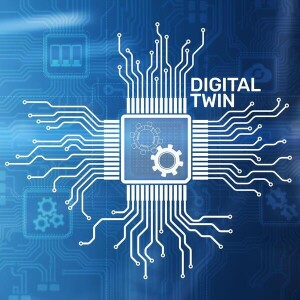
Monday Mar 03, 2025
Monday Mar 03, 2025
Imagine testing a new medical device without putting someone on an operating table. Or experimenting with new autonomous capabilities without placing a car on the road.
Computer simulations have been used for decades to predict outcomes but now, digital twins create virtual environments that not only mirror their real-world counterparts but respond to real-time data to yield more confident decision making.
Yael and Mike discuss digital twins with UVA Darden Professor Sam Levy, Assistant Professor of Business Administration at Darden. Levy holds a Ph.D in Marketing from Carnegie Melon and his dissertation introduces a novel concept of “digital marketing twins” to better understand individual-level customer satisfaction.
Look for new episodes of Good Disruption on the first Monday of each month!

Monday Feb 03, 2025
Monday Feb 03, 2025
From Wall-E and the Iron Giant to I Robot and Terminator, Hollywood has portrayed robots as friendly and misunderstood but also a technology to be feared if left in the wrong hands. Society has been fascinated with the idea of robots, ever since the term was introduced in the 1920s science fiction play “Rossum’s Universal Robots”. Today, humanoid robots are being designed not only to carry out simple tasks but also, display a broad range of emotions and react to people in real-time. But just because we can build it, should we?
Yael and Mike are joined on this episode by Professor Frank Li, an Assistant Professor of Management Information Systems at the UBC Sauder School of Business, a digital fellow at Stanford University Institute for Human-Centered Artificial Intelligence Digital Economy Lab, and a visiting fellow at NYU Stern Center for the Future of Management. Professor Li’s research stands at the nexus of the economics of information technology, focusing on AI and robots, technical skills and future of work, and organizational changes.
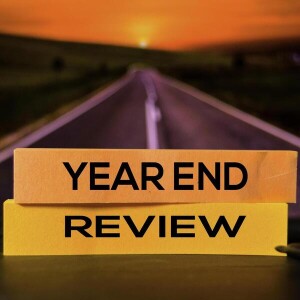
Monday Dec 02, 2024
Monday Dec 02, 2024
In their end-of-year wrap-up, UVA Darden School of Business professors Yael Grushka-Cockayne and Mike Lenox discuss the impact of AI, and the rise of digital keys and AI in household use. They also discuss the future of cryptocurrency, the rapid adoption of autonomous vehicles, the increasing popularity of electric vehicles, and revisit the potential of digital fashion and vertical farming. The Good Disruption Podcast wishes all of our listeners a safe and happy holiday season!

Thursday Oct 31, 2024
Thursday Oct 31, 2024
From “hanging chads” to claims of “rigged” Dominion voting machines, the technological improvements to voting technology aimed at improving efficiency and securing trust in the electoral process have been marred in controversy.
Yet, more countries around the world are shifting to electronic voting. In the U.S., most votes will be counted using a touch screen or optical scanner on-site. In the United Arab Emirates and Estonia all votes are submitted online.
David Nemer, UVA Associate Professor in the Department of Media Studies, joins Yael and Mike for this special early edition of November's Good Disruption episode as we head into the U.S. Presidential Election. Together they discuss how culture and trust plays a critical role in the acceptance of electronic voting and the need to protect the entire electoral process from beginning to end.

Monday Oct 07, 2024
Monday Oct 07, 2024
For more than a century, utility-scale power plants have delivered electricity to millions of customers through a vast grid of connected substations, transmission lines, and distribution lines. This one-way generator-to-customer business model is shifting due to a rapid increase in DERs like rooftop solar and energy storage systems, capable of localized generation and transacting on the grid.
This is disruption in the purest sense, where poor planning and mismanagement of DERs can result in disruption to the current grid system. Yet, if done right, DERs can add cost-efficiency and resiliency to the grid.
Mike and Yael are joined by the Executive Director of the Dominion Energy Innovation Center, Adam Sledd, to discuss DERs and important considerations for a modernized electrical grid.

Monday Sep 02, 2024
Monday Sep 02, 2024
Social media is one of the biggest and most controversial disruptions in the last decade, arguably the last several decades. More than 5 billion people, or 62% percent of the world's population, have joined Facebook, Instagram, LinkedIn and other platforms. These platforms are providing marketers greater visibility into consumer needs and creating more opportunities to build brand loyalty. And, they give consumers greater access to shared interest forums, critical health information, and local communities. Yet, there are serious concerns. Last year, the U.S. Surgeon General issued an advisory on the negative effects of social media on teen mental health. Algorithms, meant to create a more personalized experience, are isolating users from diverse opinions and news sources.
Mike and Yael speak with UVA Darden alum Travis Nixon (MBA '16), Machine Learning Engineer with Meta, about how we might use AI and data to redefine the user experience on social media to achieve healthier outcomes.

Monday Aug 05, 2024
Monday Aug 05, 2024
The Merriam-Webster Dictionary defines companion as “one that accompanies another” and “one that keeps company with another”. From physical training and therapy to friendships and personal assistance, people are increasingly looking to AI companions for support.
Still, there is something missing. These AI companions are designed to support the individual but what is the impact on broader society? Don’t we as humans get something out of supporting each other?
Mike and Yael talk with Allison Pugh, author of The Last Human Job: The Work of Connecting in a Disconnected World, whose research suggests that people working in more empathetic jobs find purpose in motivating others and that two-way human connection creates social trust and feelings of belonging not easily replaced by AI.
Allison Pugh is a Professor of Sociology at Johns Hopkins University and the 2024-25 Vice President of the American Sociological Association. At the time of this recording, Allison was a Professor of Sociology and Chair of the Department of Women, Gender and Sexuality at the University of Virginia.
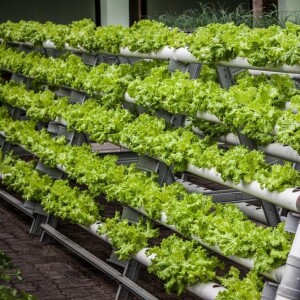
Monday Jul 01, 2024
Monday Jul 01, 2024
Let’s talk lettuce. Every year Americans consume 30 pounds of lettuce per capita, a fivefold increase from the previous century, with more than 90% of it grown in California and Arizona. What happens when that supply chain is threatened?
We saw a glimpse of the disruption in 2021, when US production dropped 11% and prices rose 17% because of pests, severe weather, and increased demand during the pandemic. With rising temperatures and more extreme weather patterns forecasted for the years to come, it’s time we rethink how we grow and distribute food.
Beanstalk Farms co-founder Jack Ross joins Mike and Yael for this episode to talk about the nutritional and environmental benefits of indoor, vertically farmed produce and the need to build a more resilient, decentralized US food system that prioritizes fresh over processed.
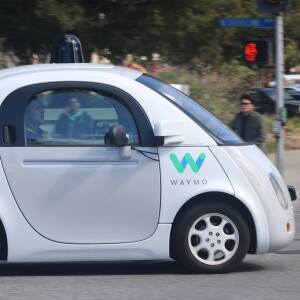
Monday Jun 03, 2024
Monday Jun 03, 2024
Gen Xers will remember Knight Rider, a television show in the 1980s about a crime fighter who battles bad guys with the help of a technologically advanced Pontiac Firebird Trans Am that drives itself and talks, all powered by artificial intelligence. At that time, the idea of a self-driving car was futuristic; but now 40 years later, some elements of autonomy are available in passenger vehicles as a standard offering. Just how close are we to fully automated vehicles and how will transportation itself change as a result?
Mike and Yael talk with Will Shepherdson, Darden alum (MBA’21) Product Manager at Waymo, and Madhur Behl, an Associate Professor in Computer Science at UVA. Waymo operates autonomous ride-hailing services in Phoenix, San Francisco, Los Angeles, and Austin. Professor Behl conducts research at the confluence of Machine Learning, Predictive Control, and Artificial Intelligence with applications in Cyber-Physical Systems, Autonomous Systems, Robotics, and Smart Cities.
Look for new episodes of Good Disruption on the first Monday of each month!
Podcast photo image of Waymo vehicle courtesy of Wikimedia Commons.

Monday May 06, 2024
Monday May 06, 2024
Garments that respond to body movements, intricate laced dresses using plastics and resins, highly sculpted pieces with complex geometric shapes. The use of 3D printing in the fashion industry is allowing designers to think outside the box, in both materials and creativity. Major fashion houses Adidas, Hugo Boss, Louis Vuitton, Dior, Reebok, Tommy Hilfiger, and others are using 3D printing to bring new ideas to life while helping to reduce the industry’s environmental footprint.
The impacts of this multi-billion fashion industry are estimated at 10% of global carbon emissions and 20% of global clean water pollution. The production process is also responsible for significant waste – an estimated 35% of materials used in the supply chain ends up as waste.
In this episode of Good Disruption, Mike and Yael are joined by Naomi Kaempfer, Creative Director for Art, Design, and Fashion at Stratasys, a leader in industrial 3D printing and additive manufacturing solutions, materials and services, to discuss how the fashion industry can benefit from 3D printing by creating customizable, fully digital products that reduce waste and improve supply chain efficiency. Together they look at the potential for improvements in creative design and ponder the impact on traditional industries from customizable and “intelligent” clothing.
For more information about our guest on this episode, visit https://3dprintedart.stratasys.com/naomi-kaempfer.
Good Disruption is now releasing monthly on the first Monday! Join us again in June for another exciting topic.
Thumbnail image for this podcast Designed by Freepik. www.freepik.com
Monday Feb 05, 2024
Monday Feb 05, 2024
From the explosion of Generative AI to the evolution of the hybrid workplace, disruption has become the “norm” for business. How will business and society be shaped by disruption in 2024?
Yael and Mike are joined by Devin Bigoness, Executive Director & Chief Client Officer for Darden Executive Education & Lifelong Learning, to explore just a few of the emerging technologies and trends, as well as ongoing concerns, that senior leaders need to be ready to manage and leverage in 2024, including:
Top-of-mind issues for CEOs
What ChatGPT says are the top 5 trends in 2024
Adoption of AI/tech in business and integrating tech into the classroom — including how Darden's flagship advanced management experience, The Executive Program (TEP) has evolved to include a core metaverse experience used throughout the program and explores how other industries are implementing new tech to enhance training, customer experience, etc.
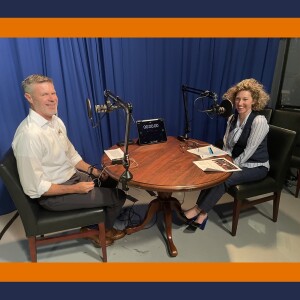
Wednesday Dec 13, 2023
Wednesday Dec 13, 2023
Happy Anniversary to Good Disruption! It's been an interesting year of good, bad, and no disruptions. From generative AI, NFTs, and cryptocurrency to renewable energy and clean meat, Yael and Mike review their predictions and discuss whether they still hold up.

Tuesday Nov 07, 2023
Tuesday Nov 07, 2023
The proliferation of AI has given rise to fear of job replacement across many industries, including entertainment. Technologies like Chat GPT and AI-facilitated computer-generated imagery (CGI) threaten the livelihoods of tens of thousands of writers and actors. In April 2023, the Writers Guild of America (WGA) went on strike against the Alliance of Motion Picture and Television Producers. Months later, the Screen Actors Guild – American Federation of Television and Radio Artists (SAG-AFTRA) followed suit. In their list of demands – protection from the use of AI by studios. Is this a real or perceived threat and what is the potential impact on the consumer experience?
Mike and Yael speak with Anthony Palomba, Assistant Professor of Business Administration at UVA Darden. Palomba teaches leadership communication and storytelling with data at Darden. His research explores how technology innovation influences competition among entertainment and media firms and the deployment of these technologies to better understand consumer and firm behaviors.

Wednesday Feb 08, 2023
Wednesday Feb 08, 2023
The COVID pandemic forced people to work from home and left many questioning the value of going back into the office. Employee surveys suggest that most workers want to retain some form of remote work, either full-time or hybrid. In response to this shift, large companies like Twitter, Slack, and Salesforce have announced new hybrid work plans. It seems that fully working on-site is a thing of the past.
There are many emotional, societal, and environmental benefits to remote working. No longer are employees tied to city centers with higher costs of living and reduced travel will lower greenhouse gas emissions. There are also benefits to companies, with some research suggesting that remote workers are more productive. Yet, challenges like Zoom fatigue and team collaboration exist. How do organizations navigate this new normal?
Mike and Yael speak with Roshni Raveendhran, Assistant Professor of Business Administration at UVA Darden. Roshni's research focuses on understanding the future of work. She examines how technological advancements influence organizational actors, workplace practices and the management of employees. In doing so, she develops insights about how organizations can effectively integrate novel technologies into the workplace to manage their employees and address the changing nature of work.
Be sure to follow us on Twitter @TalkDisruption.

Wednesday Feb 08, 2023
Wednesday Feb 08, 2023
One quarter of greenhouse gas emissions in the US is attributed to electricity production. Greening the grid is critical to our ability to decarbonize the economy and after decades of investment and technology improvements we are finally at a tipping point with renewables. Utility-scale solar and wind power are cost-competitive with natural gas even without incentives. Renewable energy sources now account for more than 20% of electricity generation.
Yet, challenges exist to broader adoption, including the need for a massive build-out of energy storage on the grid. What policies and actions are underway to overcome these barriers? How might other clean technologies like green hydrogen and geothermal play a role in decarbonizing the US grid?
Mike and Yael speak with Sandy Reisky, Founder and Board Member for Apex Clean Energy.
Be sure to follow us on Twitter @TalkDisruption.

Wednesday Feb 08, 2023
Wednesday Feb 08, 2023
Twitter co-founder Jack Dorsey’s first tweet – "just setting up my twttr" – sold for more than $2.9 million. Bored Ape Yacht Club digital art pieces fetch just over $100,000. NBA Top Shot sells digital NBA moments for millions of dollars. Non-fungible tokens, or NFTs, are making this possible. But is it more hype than reality?
In previous episodes we explored the phenomenon of algorithms creating art and music and touched on the idea of NFTs representing personal data. In this episode we dig deeper into the growing NFT market. Will NFTs be more broadly adopted or limited to the wealthy? What are the potential negative externalities associated with using NFTs, such as energy consumption, malicious behavior, and equal access?
Mike and Yael speak with Dennie Kim, Associate Professor of Business Administration at UVA Darden. Dennie’s research examines the design and performance of whole organizational networks, and the emergence and evolution of new industries. His current work examines multiple contexts, including disparities in healthcare delivery, healthcare reform, whisky, and blockchain applications, including NFTs.
Be sure to follow us on Twitter @TalkDisruption.

Wednesday Feb 08, 2023
Wednesday Feb 08, 2023
Deepfakes once used purely for entertainment purposes are becoming more pervasive on social media and, in some alarming cases, more sinister. Take last year’s video of Ukrainian President Volodymyr Zelenskyy where he appeared to tell soldiers to surrender to Russia. The video underscores the potential damage that deepfakes could cause if there are not protections in place.
Yet, there are also benefits from automation in content generation. The use of deep learning algorithms like GPT-3 offer the ability handle, manage, release, and edit more content over time. But there is also a danger that comes with this automation. We could find ourselves in a world where most of the content being consumed on the internet daily is created by fewer and fewer people and companies. Do the benefits outweigh the risks? How do policymakers protect people from the dangers of misinformation?
Mike and Yael talk with Dr Tom Chatfield (@TomChatfield), a British author and tech philosopher. Tom’s non-fiction books explore digital culture, including How To Thrive in the Digital Age (Pan Macmillan).
Be sure to follow us on Twitter @TalkDisruption.

UVA Darden School of Business
At the UVA Darden School of Business, our mission is to improve the world by developing responsible leaders through unparalleled transformational learning experiences. Through degree and non-degree programs, delivered by the world’s best faculty and bolstered by their research and ideas, we put your personal purpose in motion, setting the stage for a lifetime of career advancement and impact.






